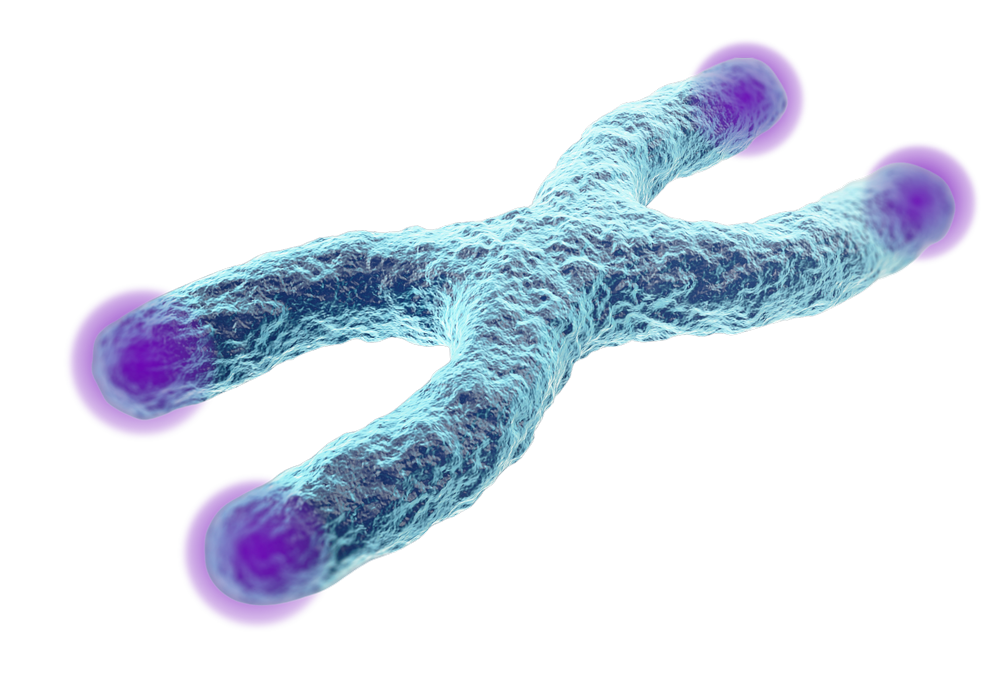The Longevity Code: Unlocking the Secrets of Anti-Aging Through Diet and Lifestyle Changes
Aging is a natural part of life that we all have to face. However, recent research has shown that there are steps we can take to slow down the aging process and enjoy a longer, healthier life. The key is to understand the longevity code and make simple changes to our diet and lifestyle.
Understanding the Longevity Code
The longevity code is a set of habits and lifestyle choices that have been shown to slow down the aging process and promote longevity. The science behind anti-aging is complex, but it can be broken down into a few key areas:
DNA and Aging
Our DNA is responsible for the aging process, but certain lifestyle choices can impact how quickly we age. For example, exposure to toxins and pollutants can damage our DNA and accelerate the aging process.
Telomeres and Aging
Telomeres are the protective caps at the end of our DNA strands. As we age, these telomeres shorten, leading to cellular damage and aging. However, certain lifestyle choices, such as regular exercise and a healthy diet have been shown to help protect and even lengthen telomeres.
A study conducted by Dr. Dean Ornish and his colleagues at the University of California, San Francisco, found that lifestyle changes, including a plant-based diet, regular exercise, and stress-reducing techniques like meditation, could significantly lengthen telomeres in men with low-risk prostate cancer.
In addition to these lifestyle changes, certain supplements and nutrients have been shown to support telomere health. For example, a study published in The Journal of Nutritional Biochemistry found that a combination of omega-3 fatty acids, vitamin E, and vitamin C could help protect telomeres from oxidative damage and slow down the shortening process.
It's important to note that while telomere length is a marker of aging, it is not the only factor that contributes to aging. However, by taking steps to protect and support telomere health, we may be able to slow down the aging process and enjoy a longer, healthier life.

Free Radicals and Oxidative Stress
Free radicals are unstable molecules that can damage cells and contribute to aging. Antioxidants, found in certain foods, can neutralize free radicals and protect our cells from damage.
Inflammation and Aging
Chronic inflammation has been linked to a variety of health problems, including aging. By reducing inflammation in our bodies through diet and lifestyle changes, we can slow down the aging process.
Unlocking the Secrets of Anti-Aging
Now that we understand the science behind anti-aging, let's explore some of the key diet and lifestyle changes we can make to unlock the secrets of anti-aging.
Diet and Anti-Aging
- The Benefits of a Plant-Based Diet
Research has shown that a plant-based diet can help protect against age-related diseases such as heart disease, cancer, and Alzheimer's. A diet rich in fruits, vegetables, whole grains, nuts, and seeds can provide the nutrients and antioxidants our bodies need to slow down the aging process.
- The Importance of Antioxidants
Antioxidants are molecules that can neutralize free radicals and protect our cells from damage. Some of the best sources of antioxidants include berries, leafy greens, nuts, and seeds.
- The Role of Fasting in Anti-Aging
Intermittent fasting has been shown to have a variety of health benefits, including anti-aging effects. By limiting the number of calories we consume during certain periods, we can promote cellular repair and reduce oxidative stress in our bodies.
Lifestyle Changes and Anti-Aging
- The Importance of Exercise
Regular exercise has been shown to improve cardiovascular health, boost immune function, and protect against age-related diseases. High-intensity interval training (HIIT) has been specifically shown to have anti-aging effects.
- The Benefits of Meditation
Meditation has been shown to reduce stress and inflammation in the body, which can slow down the aging process. It can also improve cognitive function and promote a sense of calm and well-being.
- The Role of Sleep in Anti-Aging
Getting enough high-quality sleep is crucial for maintaining our health and slowing down the aging process. Lack of sleep has been linked to a variety of health problems, including increased inflammation and accelerated aging.
- The Impact of Stress on Aging
Chronic stress has been linked to a variety of health problems, including accelerated aging. By reducing stress in our lives through practices such as meditation, exercise, and mindfulness, we can slow down the aging process.
The Top Anti-Aging Foods
Incorporating certain foods into our diet can also help slow down the aging process. Some of the top anti-aging foods include:
- Berries - high in antioxidants and anti-inflammatory compounds
- Leafy greens - rich in vitamins and minerals that support overall health
- Nuts and seeds - high in healthy fats, protein, and antioxidants
- Whole grains - provide fiber, vitamins, and minerals that support overall health
- Legumes - high in protein, fiber, and antioxidants
- Healthy fats - such as those found in olive oil and avocado, can help reduce inflammation and protect against age-related diseases.
Incorporating Anti-Aging Habits into Your Life
Making simple changes to our diet and lifestyle can help unlock the secrets of anti-aging. Here are some tips for incorporating anti-aging habits into your life:
- Tips for Starting a Plant-Based Diet - start by incorporating more fruits, vegetables, whole grains, nuts, and seeds into your meals.
- Incorporating Intermittent Fasting into Your Routine - start by limiting your eating window to 8-10 hours per day and gradually reducing your calorie intake during fasting periods.
- Incorporating Exercise into Your Routine - start by incorporating 30 minutes of moderate-intensity exercise into your daily routine, such as brisk walking or cycling.
- Incorporating Meditation into Your Routine - start by dedicating 10-15 minutes per day to meditation, using guided meditations or apps to help you get started.
- Getting Enough Sleep - aim for 7-9 hours of high-quality sleep per night by establishing a consistent sleep schedule, creating a relaxing sleep environment, and avoiding stimulating activities before bedtime.
- Reducing Stress - practice stress-reducing techniques such as meditation, yoga, or mindfulness, and prioritize self-care activities such as spending time in nature, taking a relaxing bath, or reading a book.
Conclusion
While aging is a natural part of life, we can take steps to slow down the aging process and improve our health and longevity. By understanding the science behind aging and incorporating anti-aging habits into our daily lives, we can unlock the secrets of anti-aging and enjoy a long, healthy life.
FAQs
- Can a plant-based diet really slow down the aging process?
- Yes, a plant-based diet has been shown to have anti-aging effects by providing our bodies with the nutrients and antioxidants they need to slow down the aging process.
- What are some of the best anti-aging foods?
- Some of the best anti-aging foods include berries, leafy greens, nuts and seeds, whole grains, legumes, and healthy fats such as those found in olive oil and avocado.
- How can I incorporate exercise into my daily routine?
- Start by incorporating 30 minutes of moderate-intensity exercise into your daily routine, such as brisk walking or cycling. You can also try high-intensity interval training (HIIT) for anti-aging benefits.
- Can stress really accelerate the aging process?
- Yes, chronic stress has been linked to accelerated aging and a variety of health problems. By reducing stress through practices such as meditation and mindfulness, we can slow down the aging process.
- How much sleep do I need for anti-aging benefits?
- Aim for 7-9 hours of high-quality sleep per night by establishing a consistent sleep schedule, creating a relaxing sleep environment, and avoiding stimulating activities before bedtime.
Sources
- "The Longevity Diet" by Valter Longo
- "The Blue Zones: Lessons for Living Longer from the People Who've Lived the Longest" by Dan Buettner
- "The Telomere Effect: A Revolutionary Approach to Living Younger, Healthier, Longer" by Dr. Elizabeth Blackburn and Dr. Elissa Epel
- "Intermittent Fasting: Surprising Update" by Dr. Michael Greger on NutritionFacts.org
- "Exercise and Aging: Can You Walk Away From Father Time?" by Harvard Health Publishing
- "Meditation: In-Depth" by the National Center for Complementary and Integrative Health
- "Healthy Sleep Tips" by the National Sleep Foundation
- "Stress Effects on the Body" by the American Psychological Association
J.D. Wilson is an Integrative Health Specialist, Certified Meditation Teacher, and author of The Comfort Trap: The Quiet Cost of an Unchallenged Life. He founded Fitsnip.com to translate complex research into practical systems for longevity and mental clarity.
About: https://fitsnip.com/about




